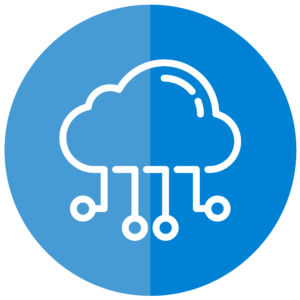As technological advancements have continually transformed in the 21st century and redefined the education sector and the focus shifts toward flexibility and lifelong learning , African nations are advancing in an exceptional manner. They are adapting new methods of managing digital identity with emerging systems that can create an immense impact in prioritizing control over the data .
Likewise in a similar vein higher education demonstrates a real empowerment as they can share verified qualifications easily while ensuring trust and fairness . With the rise in computing and networked systems which gradually transforms the digital representatives in a way that governs and the way people use devices and interact with the internet.
How incredibly blockchain technology and decentralised identity has empowered students and boosted education transparency in Africa was impeccable . It not only helps to build transparency but regain the trust among students, such as decentralized identifiers, self-sovereign identity, blockchain-based verification, institutions and employers in Africa’s education and technology .
Nevertheless ,the study indicates that it has created an impressive turn , Smile ID has now surpassed the identification verification approx 200 million .It is a big achievement in less than ever . What took almost seven years to achieve that data shows it has accomplished in just one year and Smile Id gain trust so data and increase in demand . The study shows that the revenue in the online education market will reach US$979m in 2025.Such achievements highlight how blockchain improves education transparency in Africa while fostering a more accountable and inclusive digital ecosystem.
Digital Identity and the African Experience: Cultural Continuity and Technological Change
Digital identity has had an immense impact on human existence that redefines the way traditionally African societal experience underwent profound transformation . It is empowering students in the digital age that can bring reformation into their lives .
With the growing adoption of decentralized identity platforms across the education sector, technology, their influence extends to other sectors such as governance, banking, healthcare, and telecommunications which now depend on digital credentials.
Global Trends and Technological Innovations
Various factors have guided how digital identity has evolved, including social trends and the interlinked technology . With smartphones it has been easily enabled financial inclusion, government service access, and secure communication. Biometric has emerged as a major innovation that creates user controlled identity mechanisms and incorporates fingerprints, facial recognition . Even as these technologies enhance its security , though these advancements improve many aspects of life, they simultaneously pose serious questions around consent.
Businesses across sectors are increasingly adopting blockchain technology and they are rising with it. While these technologies are promising that it not only improves transparency but creates demand to avoid exploitation or unfair distribution of benefits.Artificial Intelligence is redefining the way we manage things like it create our digital identity that not body can tamper and with integration of Artificial Intelligence into verification it brings forth challenges , including bias , and ethical tensions in automation.
Africa’s Digital Identity Landscape
The development of digital identity in Africa unfolds within a unique context defined by heterogeneous populations and varied social structures; it varies from different levels of technology infrastructure along with the continent’s complex social, political, and economic landscape.
As the concept of decentralization has evolved beyond its technical dimension ,social, and theologically it fosters and addresses the issue of data integrity and transparency in record keeping . It has become very évitable that it can’t tamper in any way nor can it be changed . It took initiatives particularly with the African context, emphasizing, and empowering them. This change in economic transformation and in various different opportunities to cater the technology and serve the Uplifts humanity instead of deepening social divides.
Strengthening Africa’s Digital Infrastructure Through Self-Sovereign Identity
Africa is seeing consistent rise in implementing blockchain technology in 2025. Countries like Nigeria, Kenya are exploring new approaches with decentralised identity and public records. GDPR and eIDAS ensure international privacy and user ownership of information. By making digital identity able to work across systems and guided by citizen needs in a pan -African self sovereign identity network that enables seamless access to finance, public services, and education while reducing fraud and dependency on external providers.
Web3 Solutions for Education Equity in Africa
Web3 technologies are fostering opportunities that enhance education equality across Africa utilizing blockchain and self-sovereign identity platforms for educational purposes. By adopting self-sovereign identities, students can safely manage their academic records, ensuring they are authentic, secure, and easily shared across borders and institutions.By reducing fraud and streamlining administrative processes, this system ensures that learners from underserved areas can access higher education and scholarships equally, fostering inclusivity and empowering students.Additionally, Web3 solutions enable smooth integration among educational institutions, employers, and government agencies, fostering a trusted digital ecosystem
How eTraverse Supports Africa’s Digital Identity Transformation
eTraverse provides customized digital solutions that leverage decentralised identity and blockchain technology across Africa’s education and technology sectors. eTraverse ensures students’ education credentials which are easily verifiable , tamper proof, and transparent, By enabling institutions to implement robust self-sovereign identity solutions.
These can fortify trust among students, employers, and institutions while enhancing, reducing fraud , and driving forward the adoption of technology and education platforms across the continent. eTraverse encourages the creation of Web3 solutions for education equity in Africa, empowering users with easy access to financial solutions.
Conclusion
Africa’s education sector is experiencing a shift as decentralized identity verification boosts transparency, trust, and efficiency. Blockchain systems enable secure verification of academic qualifications for students, institutions, and employers, ensuring personal data stays fully controlled. Platforms like Smile ID show the potential of decentralized identity to scale rapidly and gain trust, fueling expansion in Africa’s online education market, which is forecast to reach US$979 million by 2025.
Contact Us Today













